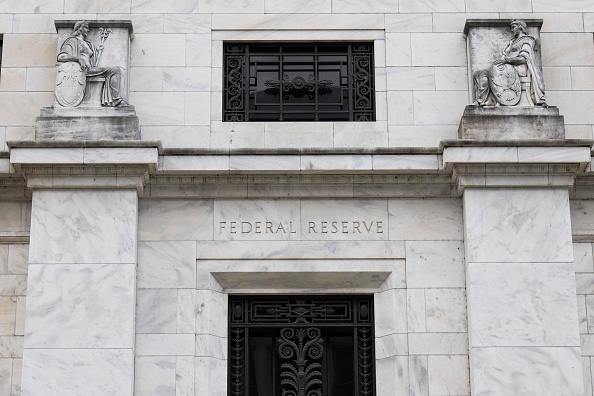
The Massachusetts economy keeps motoring along, putting prospects of an imminent recession in the rear mirror.
That’s the view of state and local analysts, who concur that the business climate continues to brighten.
That derails a previous train of thought that assumed continued rate hikes by the Federal Reserve would lead to an economic downturn.
Despite high interest rates, the Massachusetts economy grew at an annualized rate of 4% during the second quarter, while the state’s unemployment rate remains at an historic 2.5% low.
Economists with MassBenchmarks, an economic and public-policy research group published by the University of Massachusetts Amherst Donahue Institute in cooperation with the Federal Reserve Bank of Boston, said last week that real gross domestic product growth in Massachusetts exceeds the rest of the country, that economic improvements here are “broad based,” and that the Bay State “has become a leading state for net jobs growth.”
“The unexpectedly strong rebound in state and U.S. economic growth has come despite inflation, slowing economic growth in China, the war in Ukraine, and the lingering effects of the pandemic on production and supply chains.
“Heading into the latter half of 2023, GDP growth is expected to slow, and may be on course towards a soft landing, rather than an economic downturn,” the group said in a summary of its editors’ discussion.
That’s also the assessment of the Associated Industries of Massachusetts, which reported Monday that the latest results from its monthly Business Confidence Index survey suggest much of the same.
The 0-to-100 scale index shed 0.1% to settle at 52.4 for August, AIM said, about 0.3% below where it was a year ago. But in responses to its survey, AIM said it found that “employers remained slightly optimistic amid a resilient economy that continues to defy predictions of a recession.”
An advertising executive told AIM, “As a sales manager I have a good insight into the majority of businesses in our region and feel that most continue to be positive … Recruitment continues to be a need for all but specifically in manufacturing, home improvement and health sectors. Product shortage is no longer the primary discussion.”
In its September Beige Book, which draws information from banking and business contacts, the Federal Reserve Bank said that business activity in New England “expanded modestly on balance, as real estate markets continued to lag other sectors of the [regional] economy.”
Feedback from the Fed’s contacts also supported the feeling that the economy isn’t faring as poorly as many expected it would and that the future seems a bit brighter.
And “[g]iven the largely positive data for Massachusetts and the diminished likelihood of a full-blown recession,” as MassBenchmarks put it, analysts are thinking about what else Massachusetts could do to address some of the persistent issues that weigh on the economy.
That main issue continues a theme that’s persisted since the easing of pandemic restrictions – lack of skilled employees.
“We know AIM members are still struggling with workforce shortages and have challenges hiring qualified candidates. One of the simplest ways to solve this problem is to provide immediate tax incentives to keep workers in Massachusetts — including through increased housing production — and avoid a further drain of our talent pool,” AIM CEO John Regan said.
A recent survey of employers by the National Federation of Independent Businesses found that 40% of small business owners in Massachusetts have job openings they can’t fill, while 36% have raised pay to lure workers back into the labor force.
The survey found at least 93% of owners hiring or trying to hire reported few or no qualified applicants for open positions.
About 35% of business owners have openings for skilled workers and 18% have openings for unskilled labor, the report notes.
“It’s a competitive job market right now and in order to hire and retain qualified workers, many small businesses are either increasing pay, or planning to do so over the next few months,” said Chris Carlozzi, NFIB’s Massachusetts state director.
Business leaders say the reasons behind the worker shortage is complicated. Some workers have permanently exited the labor force, while others move around between positions to get better pay, benefits and other hiring perks.
The MassBenchmarks board said that making investments that could grow the state’s labor force constitutes a unifying theme among its members and could serve as “a rallying point that could guide state policy.”
“For example, providing more affordable housing and childcare, free community colleges, and improving our antiquated transportation infrastructure would help make Massachusetts a more attractive place to live and work,” MassBenchmarks said.
With the state’s jobless rate suggesting nearly full statistical employment, wage inflation will likely continue despite the Fed’s best efforts to temper it.
Quality of life issues – most prominently lack of affordable housing – will continue to hamper employers’ efforts to fill job openings, especially for those younger, more mobile workers.






